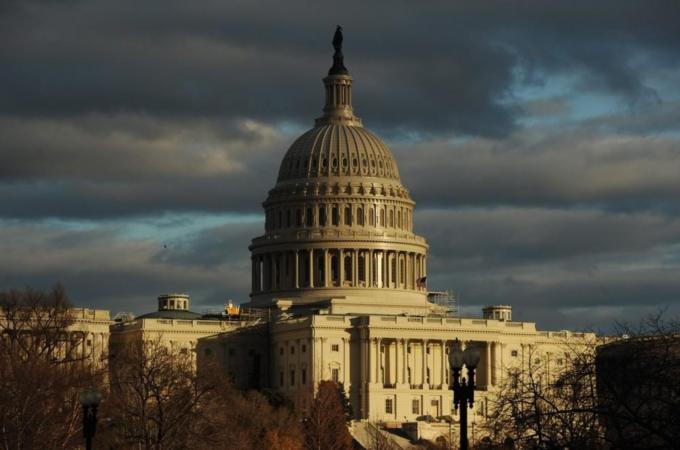|
Congress will remain divided with a Democrat-held senate and Republicans holding majority in House of Representatives.
|
 Control of the Senate gives Democrats a firewall against Republican attempts to overturn Obama’s measures [EPA]
Control of the Senate gives Democrats a firewall against Republican attempts to overturn Obama’s measures [EPA]
A newly re-elected President Barack Obama will once again deal with a divided Congress with Democrats readily retaining control of the US senate, as Republicans held on to their solid majority in the House of Representatives.
Republicans were dealt a bitter blow on Tuesday by the Democrats, who had more seats to fight for, and were initially seen as vulnerable in the senate.
But two Republican candidates in Missouri and Indiana who had made controversially damaging comments about rape and abortion were both defeated and an incumbent Republican fell in liberal Massachusetts.
Republicans also lost a seat in Maine, where an independent who is expected to caucus with the Democrats won, while picking up a Democratic-held seat in Nebraska.
More than $2bn was spent on the nasty fight for Congress. All 435 House seats were on the ballot, and Republicans retained control there, though Democrats made a few gains.
The result means President Barack Obama will have difficulty passing any ambitious pieces of legislation in his second term.
Up to a dozen or so Senate races out of the 33 on the ballot were seen as competitive, and almost all of those that were called on Tuesday – in Wisconsin, Virginia, Connecticut, Missouri, Ohio, Pennsylvania, New Mexico and Florida – went the Democrats’ way. That left them poised to retain or even increase their 53/47 advantage in the Senate.
Control of the Senate gives Democrats a firewall against Republican attempts to overturn Obama’s signature legislative achievement, his health care reform law, before it is fully implemented in 2014.
District boundaries
Democrats began the year in a precarious position, defending 23 Senate seats and losing several retiring veterans in Republican-leaning states, all while voter discontent lingered over the sluggish economy and Obama’s health
care law.
But the Democrats fielded some strong candidates, and Republican prospects were undermined by some candidates who proved to be too conservative and by the surprise retirement of Olympia Snowe in Maine.
Snowe, a moderate, voiced her frustration with the gridlocked Congress when she announced her retirement earlier this year. Independent Angus King, a former governor, won a three-way race to replace her.
King has pledged to be a bridge between the parties and has not said whether he will caucus with the Democrats or Republicans. However, he is expected to side with the Democrats after Republican groups spent hundreds of
thousands of dollars on ads attacking him.
Republicans will be left with only a few Senate seats in the Northeast. In a marquee race in Massachusetts, Republican Scott Brown, who managed to win the seat once held by the late Edward M Kennedy, was defeated by Democrat Elizabeth Warren, a favorite among liberals for her work as a consumer advocate.
Congress consistently rates low in public opinion surveys, but incumbents still tend to get re-elected.
They benefit from a system that gives them huge financial advantages in their re-election bids, and enjoy support from voters who tend to favour their own lawmakers even if they dislike Congress overall.
Many incumbents in the House were also helped by the once-a-decade redrawing of district boundaries, which has just been completed.
Source: Al jazeera








